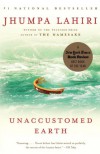1
Followers
22
Following
Infinite Joe
I like challenging books that make you think, and leave you happy that you did. Typically, I find character driven literary fiction the most satisfying, although I in no way think of myself as a serious literary critic.
Mother Night
 What if, during a time of war, you were enlisted as a secret agent for the side whose goal is to stop the slaughtering of millions of people, but in order to accomplish your secret mission, and to gain favor with the enemy, you had to publicly spew the most awful verbal hatred about the people you are trying to save, knowing that the words would be used by mindless drones to perpetuate even further evil? Would you be able to do it? Would you be guilty of crimes against these people, even though the end goal was their salvation? Do the ends justify the means? Would you be able to live with yourself?
What if, during a time of war, you were enlisted as a secret agent for the side whose goal is to stop the slaughtering of millions of people, but in order to accomplish your secret mission, and to gain favor with the enemy, you had to publicly spew the most awful verbal hatred about the people you are trying to save, knowing that the words would be used by mindless drones to perpetuate even further evil? Would you be able to do it? Would you be guilty of crimes against these people, even though the end goal was their salvation? Do the ends justify the means? Would you be able to live with yourself?This book explores the above moral dilemma, and explores it well, nesting it inside a good story. "We are what we pretend to be, so we must be careful about what we pretend to be."
This is definitely one of my favorite Vonnegut books, up there with Cat's Cradle.
 1
1
Wonder
 Typically, I go into reading a children's/young adult's book with a predisposed negative bias. I also usually despise books that have happy, let's-all-sing-kumbaya-by-the-campfire , endings.
Typically, I go into reading a children's/young adult's book with a predisposed negative bias. I also usually despise books that have happy, let's-all-sing-kumbaya-by-the-campfire , endings.However, within a week prior to reading this book, I had happened to watch two videos about real children being really kind to other children who would otherwise be unpopular and shunned. One had to do with a student with Down's syndrome, whose basketball team, and what seemed like the entire school, got behind him and cheered him on as he scored a few baskets in a game, and who helped to get his story onto ESPN's Sportscenter. The other had to do with a middle school football team who concocted a plan, unbeknownst to their coaches, to get a kid on their team with social and learning disabilities to score a touchdown.
So, I guess happy endings can in fact happen. Sometimes.
And so maybe these real life stories softened me up enough to find this book not only well written and enjoyable, but moving as well. It contained serious themes important to children and young adults, the intended audience for this book. But these same themes are important to us adults as well, and we sometimes (maybe more times than we would admit) need to be reminded of them. This book did a fine job at that.
Thanks to my 11-year old daughter for getting on my case about reading this book. I'm glad I did.
The Goldfinch: A Novel
 I liked a lot about this book. I liked the writing style, the length, the prose, and the story itself. There were only a few moments when I gave an incredulous "oh, come on...", but they were minor and few, and didn't detract much from my overall enjoyment of the book.
I liked a lot about this book. I liked the writing style, the length, the prose, and the story itself. There were only a few moments when I gave an incredulous "oh, come on...", but they were minor and few, and didn't detract much from my overall enjoyment of the book.The main character deals with life-changing tragedy growing up, and spends the rest of the story dealing with it, struggling mightily, and trying to come to terms with knowing he is ultimately like his father, and coping with it the best that he can.
The book also explores the theme of good things happening to bad people, or at least coming from bad situations, and handles it not in a divine "it's a lesson" sort of way, but in a deterministic "that's just the way it is sometimes, so deal with it" kind of way.
Finally the book is mainly about finding that one thing that moves you so deeply that it is able to carry you through this cesspool called life (Theo's words) and make it just a little more bearable. For Theo, it was art, and a particular painting. But for us, it could be anything. We just have to find it.
In Persuasion Nation
 I love the way this guy writes. Sometimes, when a particular story is finished, my thought process starts out at "Huh?", eventually proceeds to "Huh..", and then slowly morphs to "Oh.", and then finally lands on "Ohhhhhh....".
I love the way this guy writes. Sometimes, when a particular story is finished, my thought process starts out at "Huh?", eventually proceeds to "Huh..", and then slowly morphs to "Oh.", and then finally lands on "Ohhhhhh....". This collection touched on a bunch of things including the continuing escalation of extreme entertainment and advertising, and how it skewers ourselves and our relationships with others. It covers science, communication, religion, and humanism as well. It's all done in a slightly altered-reality kind of way that has a way of making you laugh and think at the same time.
He's definitely an odd one (he's an engineer, what do you expect?), and that's probably why I like his work so much.
The Book Thief
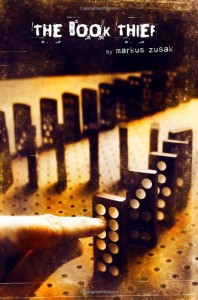 Although this book is over 500 pages, I found it to be a quick moving, extremely well structured book about the power of words, and the effects that they can have when wielded by both the best and worst of humanity. The characters felt real and well thought out, and the story was great from beginning to end.
Although this book is over 500 pages, I found it to be a quick moving, extremely well structured book about the power of words, and the effects that they can have when wielded by both the best and worst of humanity. The characters felt real and well thought out, and the story was great from beginning to end.There are a few things, however, that prevented me from giving this book 5 stars:
- Death as the narrator. I would be engrossed in the story, and things would be flowing nicely, and then would come a part where it was obvious that Death was telling the story, and I found myself rolling my eyes. It just felt hokey to me, and detracted from my overall enjoyment of the book.
- Epilogue. Although this particular one fit well enough, I hate epilogues.
- Some of the descriptions. I felt that some of the descriptions, similies and metaphors that were used were forced, and even a little chuckle-worthy. My favorite was "wooden tears". It felt as if the author wrote things at times for the sake of sounding artsy.
In spite of these shortcomings, the book was powerful enough to be a solid 4+ stars. I really enjoyed reading it.
 1
1
The Devil in the White City: Murder, Magic, and Madness at the Fair that Changed America
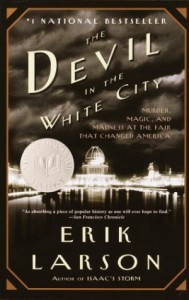 I wish I had read this about 2 months ago. I would have used the free time on my week-and-a-half business trip to Chicago a lot differently.
I wish I had read this about 2 months ago. I would have used the free time on my week-and-a-half business trip to Chicago a lot differently.Both parts of this book had me completely captivated (the two main threads alternated throughout the book). I found the sections on the history of the World's Fair in Chicago fascinating. I had no idea so many things had originated from this moment in the history of our country, and still can't believe that such an enormous undertaking was completed in such a short period of time. The sections on the serial killer H.H. Holmes were just as interesting, albeit in a different way. It was true crime on par with Ann Rule, and a window into the mental workings of a murderous psychopath.
I found this book to be a thrilling read and extremely difficult to put down.
The Sense of Touch
 First, a special thanks to Ron Parsons, his publisher, and Goodreads, as I received this book free for review as part of the First Reads program.
First, a special thanks to Ron Parsons, his publisher, and Goodreads, as I received this book free for review as part of the First Reads program.When I read a book of short stories, I typically rate each story separately, and then calculate the overall average when I’m done. This book had an average of 3.625, and so I happily round up to 4 stars.
Since this is my first book in the First Reads program, I wasn’t sure what to expect. I opened the book and read the first sentence, part of which read “… a Rapid City hangout for college kids home from the summer….”. My first thought was, “Uh-oh, what did I get myself into?” Shouldn’t it read “home for the summer”? A mistake already in the first line of the book?
My reservations were quickly dispelled, however, and that first story, “Hezekiah Number Three” became one of my favorites, along with the next one in the collection, “Beginning With Minneapolis”. I also really enjoyed “Big Blue” and “Moonlight Bowling”, although I could have done without the last story, “Be Not Afraid of the Universe”, as it just felt out of place for me.
I enjoyed Parsons’ overall writing style (even his use of the semicolon), and his sometimes condensed (but not too short) prose, which more than adequately conveys the emotions of the characters and the feel of the scene. Among other short story authors I’ve read this year, I’d put Parsons above Raymond Carver, Tobias Wolff, and Andre Dubus, but under George Saunders and Alice Munro.
Overall, the stories in this book were satisfying, sometimes spine-tingling, and certainly interesting, and I would easily agree to read Ron Parsons’ next collection.
The Lowland
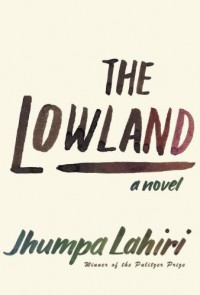 This is definitely one of the best books that I’ve read this year. As hard as I try, there is not one thing that I can point to in this book as being a deficiency. The prose was elegant and flowing, but never forced in a “look how smart I am” kind of way. I found myself frequently reading sentences over again in awe of how perfectly they were constructed. The characters were amazing, and were written in a way that made you feel that you had intimate knowledge of their innermost thoughts. The characters were so real that at times I even forgot I was reading a work of fiction. The plot swept multiple generations, and was gripping, thoughtful, hopeful, and heartbreaking at the same time. The book eloquently touches on themes of family, responsibility, loyalty, radicalism, and the consequences of the decisions we make, and how they not only have an immediate effect, but an effect that can span generations. This book was an unquestionable 5 stars, and along with Interpreter of Maladies, has easily elevated Jhumpa Lahiri onto my list of favorite authors.
This is definitely one of the best books that I’ve read this year. As hard as I try, there is not one thing that I can point to in this book as being a deficiency. The prose was elegant and flowing, but never forced in a “look how smart I am” kind of way. I found myself frequently reading sentences over again in awe of how perfectly they were constructed. The characters were amazing, and were written in a way that made you feel that you had intimate knowledge of their innermost thoughts. The characters were so real that at times I even forgot I was reading a work of fiction. The plot swept multiple generations, and was gripping, thoughtful, hopeful, and heartbreaking at the same time. The book eloquently touches on themes of family, responsibility, loyalty, radicalism, and the consequences of the decisions we make, and how they not only have an immediate effect, but an effect that can span generations. This book was an unquestionable 5 stars, and along with Interpreter of Maladies, has easily elevated Jhumpa Lahiri onto my list of favorite authors.
Levels of Life
 This one, which is the first I've read by Barnes, caught me off guard.
This one, which is the first I've read by Barnes, caught me off guard.The first part involves hot air ballooning in the mid to late 1800's. I figured this was fictional, and somewhat bland, but I found out later that it was mostly a historical account.
The second part involves a fictionalized love affair between two of the nonfictional characters. The love affair ends rather abruptly, leading to the author's assertion that "every love story is a potential grief story". Although better than the first section, I was a little confused as to where this was going. The writing, however, I could tell was superb.
The final part is a deeply personal recounting of the author's grief after the death of his wife. Again, the writing was exceptional, and the content was honest and real, but I wondered how this all fit together.
And then I started to make the small connections. And then the book started getting under my skin. In a good way. I couldn't stop reflecting on the content and its meaning. This is what a good book does.
I'll be reading more of Barnes for sure.
(Also, he reminded me a little of McEwan. British, atheist, great writer. But I've only read one of Barnes' books so far, so I don't want to get ahead of myself with comparisons.)
The Circle
 This book was a quick read with a flowing story and plenty of social commentary. The story serves as a warning for us to keep an eye on the continuing advance of social media, and the internet in general, especially when it relates to the super huge companies that are able to collect a massive amount of data on the people who use their services. It serves as a discussion on the idea of transparency versus privacy, and how deep people are willing to get into the idea that not only should they have a right to know everything about everyone else, but that everyone else should have a responsibility to know about them. Some of the characters in the novel seem to live for the attention and the validation and the congratulations they receive for their every little action or post on the Internet, which let's be honest, is already a reality for many people. This mode of interaction can serve to change people and even societies should it arrive too quickly, catching us unprepared with how to deal with it, as is shown through the characters and plot in this timely book. Although some of the plot turns were telegraphed, and some of the dialogue seemed slightly contrived and maybe a little preachy, the core of the novel was very solid, and the ending was exceptional as well. I would definitely recommend it.
This book was a quick read with a flowing story and plenty of social commentary. The story serves as a warning for us to keep an eye on the continuing advance of social media, and the internet in general, especially when it relates to the super huge companies that are able to collect a massive amount of data on the people who use their services. It serves as a discussion on the idea of transparency versus privacy, and how deep people are willing to get into the idea that not only should they have a right to know everything about everyone else, but that everyone else should have a responsibility to know about them. Some of the characters in the novel seem to live for the attention and the validation and the congratulations they receive for their every little action or post on the Internet, which let's be honest, is already a reality for many people. This mode of interaction can serve to change people and even societies should it arrive too quickly, catching us unprepared with how to deal with it, as is shown through the characters and plot in this timely book. Although some of the plot turns were telegraphed, and some of the dialogue seemed slightly contrived and maybe a little preachy, the core of the novel was very solid, and the ending was exceptional as well. I would definitely recommend it.
Pale Fire (Everyman's Library Classics)
 I enjoyed the book, and loved the depiction of the crazed Kinbote, but maybe I just had higher expectations from the 4.2 star average rating that this book has. Probably more like a 3.5.
I enjoyed the book, and loved the depiction of the crazed Kinbote, but maybe I just had higher expectations from the 4.2 star average rating that this book has. Probably more like a 3.5.Doctor Sleep: A Novel
 I think I've finally outgrown this genre.
I think I've finally outgrown this genre.It just seems to be the same formula over and over.
1) Introduce good character.
2) Something supernatural happens.
3) Introduce bad character.
4) Something supernatural happens.
5) Good character tracks down bad character.
6) Something supernatural happens.
7) Climactic battle of good vs. evil.
8) Something supernatural happens.
9) Good triumphs over evil.
10) The end.
I'm over it.
Nine Inches: Stories
 I enjoyed these modern and real stories of suburban strife, whether they're involving adults or teens, and whether they're about people dealing with the consequences of impulsive mistakes, or about those who are affected by other people's bad decisions. It was a quick read. I enjoy Perrotta more in the novel format, but these were definitely worth reading as well.
I enjoyed these modern and real stories of suburban strife, whether they're involving adults or teens, and whether they're about people dealing with the consequences of impulsive mistakes, or about those who are affected by other people's bad decisions. It was a quick read. I enjoy Perrotta more in the novel format, but these were definitely worth reading as well.
Interpreter of Maladies
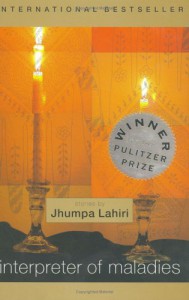 An outstanding collection of short stories by an author with a remarkable voice. Most of the stories involve Indian-Americans (one or two are set in India) and their personal struggles in a new land and with each other.
An outstanding collection of short stories by an author with a remarkable voice. Most of the stories involve Indian-Americans (one or two are set in India) and their personal struggles in a new land and with each other.
 1
1
The Sirens of Titan
 I really enjoyed this book, although at times, I felt it might have been a little more scattered than some of the other ones I've read, but his overall treatment of the characters, and his exploration of the book's main themes were the same. This time, he concentrated on...
I really enjoyed this book, although at times, I felt it might have been a little more scattered than some of the other ones I've read, but his overall treatment of the characters, and his exploration of the book's main themes were the same. This time, he concentrated on...- The meaning of life (and whether or not there even is one)
- The purpose/benefits (or lack thereof) of religion in society.
- Humanism
They were well handled. Great stuff overall.
Christian Nation: A Novel
 A disturbing tale that is not a prediction of what would happen should evangelicals gain ultimate political control, but only one of the possible outcomes. The author carries this particular outcome to a chilling, worst-case scenario, which although at times seems very hard to believe, is nevertheless not completely absurd, considering how other authoritarian regimes have come to power and terrorized their people in the past. If anything, it serves as a hopeful wake-up call for those of us who believe in the separation of church and state to keep vigilant of fundamentalism, and the fundamentalists' desired rise to power. One only has to watch closely to see instances of attempted fundamentalist policy-making on the local and state levels, sometimes reaching as high as the federal level. Christian Nation is a reminder that apathy and inactivity can be dangerous and may possibly jeopardize the freedoms we take for granted.
A disturbing tale that is not a prediction of what would happen should evangelicals gain ultimate political control, but only one of the possible outcomes. The author carries this particular outcome to a chilling, worst-case scenario, which although at times seems very hard to believe, is nevertheless not completely absurd, considering how other authoritarian regimes have come to power and terrorized their people in the past. If anything, it serves as a hopeful wake-up call for those of us who believe in the separation of church and state to keep vigilant of fundamentalism, and the fundamentalists' desired rise to power. One only has to watch closely to see instances of attempted fundamentalist policy-making on the local and state levels, sometimes reaching as high as the federal level. Christian Nation is a reminder that apathy and inactivity can be dangerous and may possibly jeopardize the freedoms we take for granted.
